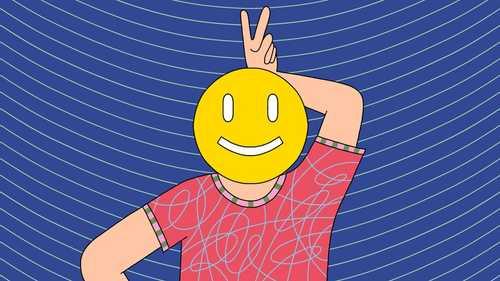The Link Between Happiness and a Sense of Humor
Curated from: theatlantic.com
Ideas, facts & insights covering these topics:
6 ideas
·8.3K reads
75
Explore the World's Best Ideas
Join today and uncover 100+ curated journeys from 50+ topics. Unlock access to our mobile app with extensive features.
"Humor can be dissected, as a frog can, but the thing dies in the process and the innards are discouraging to any but the pure scientific mind.”
E. B. WHITE
108
5.68K reads
The Sense Of Humor
Researchers have theorized that a sense of humor is made up of six basic variables:
- the cognitive ability to create or understand jokes
- an appreciation, and enjoyment of jokes
- behavior patterns of joking and laughing
- cheerful or humorous temperament,
- a bemused attitude about life
- a strategy of using humor in the face of adversity.
A sense of humor, then, can mean either being funny or enjoying funny things.
110
680 reads
The Type Of Humor You Consume And Share Matters
Humor can be positive, when it’s not intended to belittle or harm others, or when one laughs at one’s own circumstances. It can also be negative, when it attacks others or when one belittles oneself.
Positive humor is associated with self-esteem, optimism, and life satisfaction, and with decreases in depression, anxiety, and stress. Negative humor follows the exact opposite pattern: While it can feel good in the moment, it exacerbates unhappiness.
103
516 reads
Timing Is Everything
Researchers studying humor in the face of tragedy have found that jokes can indeed help people cope with grievances and loss. However, the joke can’t be too close to or too far from the event in time.
Tell a joke during a horrific natural disaster and you will be shunned; tell one about the 1906 San Francisco earthquake and most people won’t know what you are talking about. But get it right, and you can provide tremendous relief.
92
475 reads
Laughter As A Social Lubricant
Only 10 to15 percent of laughing is due to anything even remotely humorous. Much of the rest is meant to display emotions such as agreement or simple conviviality.
Laughter itself is what brings a lot of humor’s benefits, not necessarily making other people laugh. Laughter also acts as a social lubricant, making interactions easier even when there is no humor involved.
96
432 reads
Improve Your Life With Humor
- Reject grimness.
- Don’t worry about being funny. It’s better to consume humor than to supply it.
- Negative, hurtful, or excessively dark jokes are a corrosive force on your and others’ well-being. This kind of humor tends to be nihilistic as opposed to lighthearted.
100
523 reads
IDEAS CURATED BY
Luciana Owain's ideas are part of this journey:
Learn more about personaldevelopment with this collection
Conducting effective interviews
Identifying the right candidates for the job
Creating a positive candidate experience
Related collections
Similar ideas
4 ideas
2 ideas
Why We Laugh at Cheesy Jokes
theswaddle.com
Read & Learn
20x Faster
without
deepstash
with
deepstash
with
deepstash
Personalized microlearning
—
100+ Learning Journeys
—
Access to 200,000+ ideas
—
Access to the mobile app
—
Unlimited idea saving
—
—
Unlimited history
—
—
Unlimited listening to ideas
—
—
Downloading & offline access
—
—
Supercharge your mind with one idea per day
Enter your email and spend 1 minute every day to learn something new.
I agree to receive email updates


